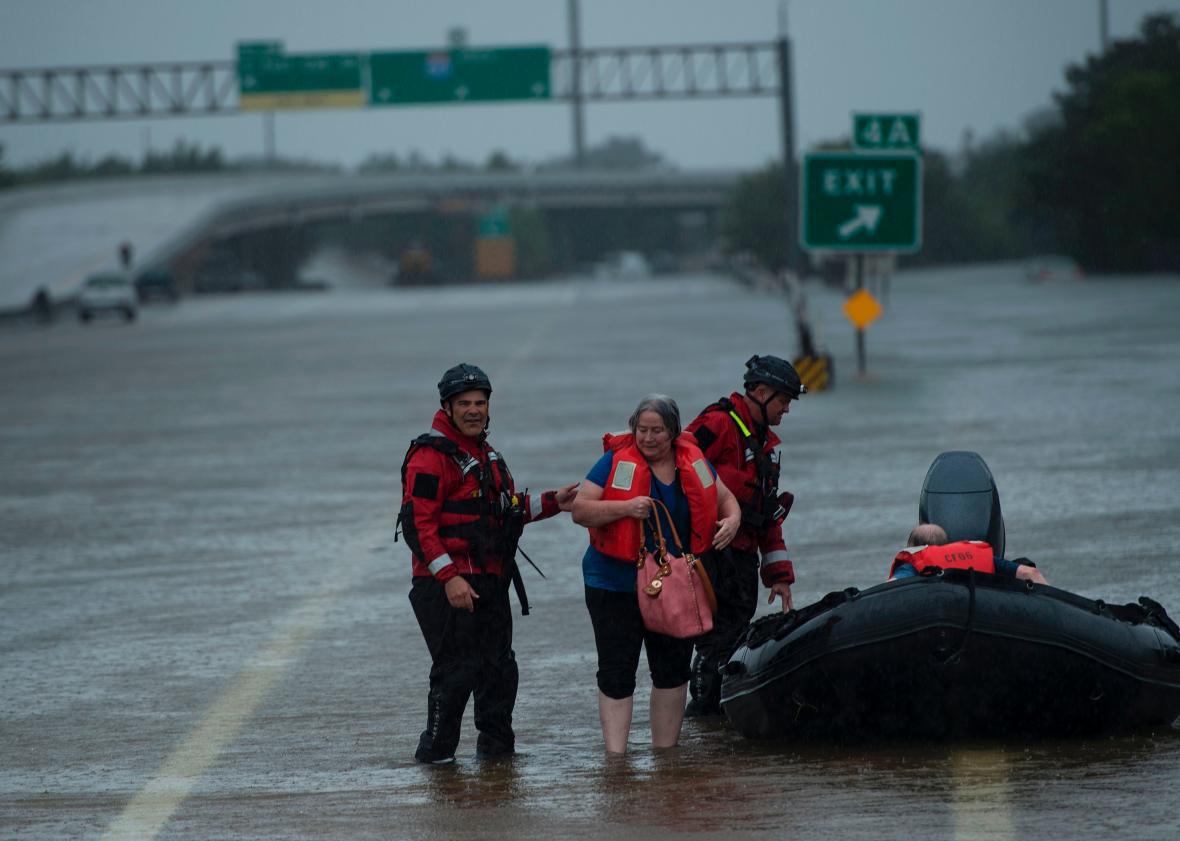Whole Woman’s Health, a group of clinics that provide abortion care and other health services, announced on Friday that it will offer free abortions to women impacted by the devastation of Hurricane Harvey. Noting that women in the Houston area and elsewhere in southeast Texas may have had to miss abortion appointments during the storm, a blog post on the Whole Woman’s Health website promised to help affected women get to one of the organization’s four Texas locations for abortion care at no cost.
“During Hurricane Harvey, many of the clinics in Houston had to close temporarily, leaving women with very few options,” the post read. “Continued political attacks on abortion access make an unwanted pregnancy particularly stressful in Texas—add that to the stress of dealing with hurricane aftermath.”
Natural disasters exacerbate existing logistical and financial barriers to women’s health care access. Women on Medicaid can’t use their insurance to cover or subsidize abortion care, and low-income women may save for weeks to afford the procedure, only to find that they’re too far along to get a cheaper medical abortion or to get a legal abortion at all in the state. After losing property or wages to a hurricane, even more women may find it difficult to pay for an abortion. Where it was once merely difficult to afford child care and time off work to accommodate an abortion appointment, after a natural disaster, it can be nearly impossible. And since women are usually the default caretakers of their families, they face the bulk of the extra responsibilities that come after a tragedy, including making arrangements for relief, organizing relocation, and caring for the young and old. This further diminishes the reserves of time and resources available for their own health care.
For the month of September, Whole Woman’s Health—the successful plaintiff in last summer’s landmark Supreme Court case on abortion restrictions—will cover both travel and housing costs for Harvey-affected women who need help getting to the organization’s outposts in Austin, Fort Worth, McAllen, or San Antonio. The group will draw from its own abortion fund, the Stigma Relief Fund, as well as the Lilith Fund, a Texas-specific abortion-funding organization that has established an emergency fund for care for Harvey survivors. Slate recommended donating to abortion funds after Donald Trump’s election because they support people who, by virtue of their class, geographic location, or immigration status, can’t access abortion care, a right wealthier women will almost always be able to enjoy. It’s for this same reason—that they empower the most marginalized people exercise autonomy over their own bodies—that abortion funds are essential resources in the aftermath of a natural disaster.
All over the world, in all kinds of crisis situations, women’s sexual and reproductive health care is one of the first basic needs to fall through the cracks of disaster relief. Rates of sexual assault rise in crisis zones, and distraught survivors are more likely to engage in sexual behaviors that put them at risk for unwanted pregnancies and sexually transmitted infections. At the same time, agencies focused on food, shelter, and first aid often neglect sexual health needs that don’t go away when disaster strikes. The American Congress of Obstetricians and Gynecologists recommends that emergency health care providers stock up on emergency contraception, preventive contraception, and condoms when they help communities recover from a natural disaster. These are resources no one’s sending in their donation boxes of diapers and canned food.
Abortion care is even trickier to ensure in the wake of a crisis, since federal funds can’t be spent on abortions and politicians may be reluctant to single out a controversial medical procedure as a critical need during a time of recovery. Abortion funds in Texas are filling in the gaps of Harvey relief, because that’s what abortion funds are designed to do.
